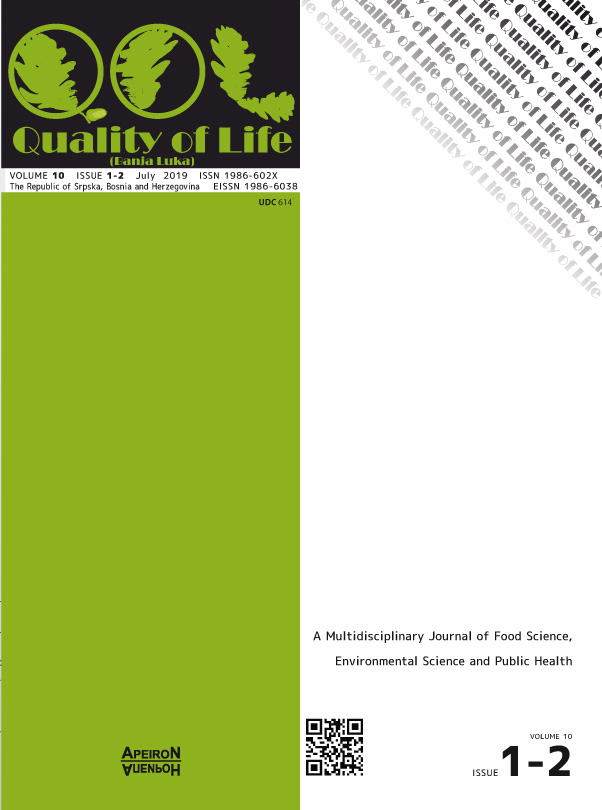Poststroke Depression
DOI:
https://doi.org/10.7251/QOL1901005SAbstract
High prevalence of cerebrovascular insults (CVI) and their comorbidity with depression additionally makes difficult not just quality of life, also its serious obstacle to all measurements and attempts of patient’s rehabilitation. The scope of work is to show frequency of depression after CVI ischemic type in whole its specifics in order to age of patients, gender, localization of lesion, as well as on level of physical handicapping. International classification of disease (MKB-10), Hamilton scale of depression (HAM-D-17) and Barthel index scale of disability were used for diagnosis. Statistical analysis was performed in SPSS programme. Among 103 patients with CVI 43 of them (41.7%) were found with consequential depression what was monitored in following six months after CVI. From total number of depressions after CVI in the age of 58 years old 14 (32.6%) were found, and in the age between 59-63 years old there were 17 (39.5%) found. In the later ages that percentage was significantly lower. This result had proved significant connection between age group and depression status (p<0.05): χ² (3, n = 103) = 12.24; p=0.007, Cramer’s V=0.34. Depression appearance after CVI in relation to genders has showed difference. Depression was marked at 16 (25.8%) male and 27 (65.8%) at female patients: χ² (1,n=103)=14.67; p=0.0002;Phi=0.4. Localization of lesion was significant in emergence of depression. In frontal part were found at 21 examinees, in basal ganglia at 16 and rest of localizations were found at 6 examinees: Depressions presence were more found at lesion localizations in left hemisphere, but no statistical importance. There were some correlation between level of physical disability and depression severity.Downloads
Published
2019-07-23
Issue
Section
Чланци
